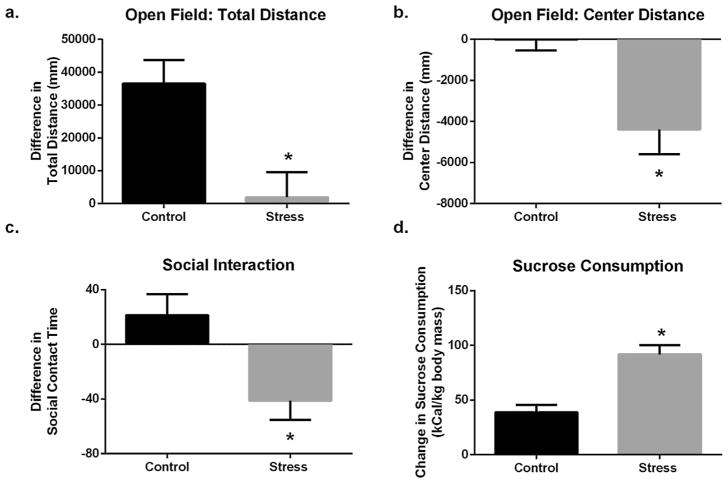Fig. 2.
Predatory stress increased affective behaviors. (a) Control mice travelled a greater distance in the open field during the second round. However, mice exposed to predatory stress did not alter the distance travelled between the two rounds of testing. (b) Stressed mice travelled significantly less distance in the center after predatory stress. (c) Total time spent in social contact was decreased by predatory stress but unaltered by repeated testing. (d) When compared to the control group, mice exposed to stress significantly increased their consumption of sucrose. Data shown are mean ± SEM; asterisk indicates significance at p < 0.05 in an unpaired two-tailed t-test.

